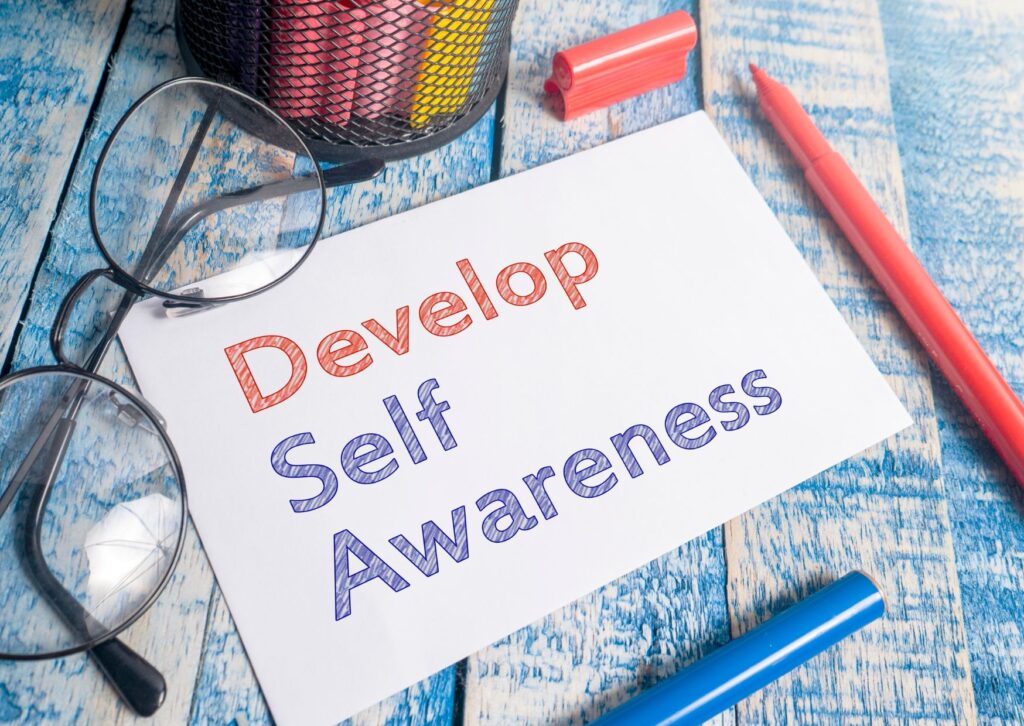In a world overflowing with productivity hacks, self-help books, and advice on how to be your “best self,” it’s easy to overlook one of the most powerful tools for true, lasting personal growth: self-awareness. Unlike external achievements or lifestyle upgrades, self-awareness is an internal compass—a deeply personal understanding of who you are, what you believe, and how you respond to the world around you. It’s not about perfection or control. It’s about honest reflection and the willingness to learn from within.
At its core, self-awareness is the ability to observe yourself objectively. This includes your emotions, your behaviors, your thoughts, and your motivations. It means noticing your reactions in the moment and being curious about why you respond the way you do. It’s not always comfortable. In fact, self-awareness often brings to light habits or thought patterns we’d rather ignore. But it’s precisely this kind of introspection that creates the foundation for meaningful growth.
Self-Awareness Opens The Door To Authenticity
Many people go through life reacting to situations based on learned behaviors, societal expectations, or fear of judgment. Without realizing it, they become versions of themselves that are molded more by the outside world than by their own inner truth. Self-awareness cuts through that noise. It allows you to recognize when you’re making choices that don’t align with who you really are.
When you’re truly self-aware, you start noticing what energizes you and what drains you. You begin to understand your values—not the ones you were taught to believe, but the ones you genuinely hold. That clarity helps you make more authentic decisions. It empowers you to live in a way that feels consistent with your identity, not someone else’s idea of success or happiness.
Self-Awareness Encourages Emotional Intelligence
Personal growth isn’t just about setting goals or building habits. It’s also about understanding your emotional landscape. Self-awareness is a central pillar of emotional intelligence, which is the ability to recognize, understand, and manage your emotions and those of others.
By becoming more aware of your feelings, you can respond to life’s challenges with greater calm and maturity. You start to catch yourself before snapping in anger or shutting down in fear. You become better at navigating conflict, listening to others, and expressing yourself clearly. These skills don’t just help you grow as a person—they also improve your relationships, your communication, and your professional life.
Self-Awareness Builds Resilience
Life is unpredictable. Challenges are inevitable. But how we handle those moments often depends less on the situation and more on how well we understand ourselves. Self-awareness fosters resilience because it gives you insight into your default responses during stress or adversity.
When you’re aware of your tendencies—whether it’s catastrophizing, blaming, withdrawing, or overworking—you have the power to pause, reframe, and choose a healthier reaction. Self-aware people aren’t perfect, but they bounce back quicker because they learn from their experiences. They don’t just survive hard times; they extract meaning from them and use those lessons to grow stronger.
Self-Awareness Supports Goal Alignment
It’s easy to chase goals that look good on paper but don’t actually serve your well-being. Without self-awareness, you might find yourself pursuing promotions, buying things, or committing to routines that look successful from the outside but feel empty inside. That disconnect can lead to frustration, burnout, or an unshakable sense that something is missing.
When you’re self-aware, you set goals that are aligned with your values, strengths, and desires. You become more intentional about where you invest your time and energy. You stop trying to live up to someone else’s standard and start crafting a life that’s meaningful to you. That doesn’t mean the path will be easy, but it will be yours—and that makes all the difference.
Self-Awareness Fosters Compassion
It may sound counterintuitive, but understanding yourself better also helps you understand others. When you recognize your own fears, insecurities, and blind spots, you’re less likely to judge others harshly. You realize that everyone has their own internal struggles, just like you.
This compassion doesn’t just make you a better friend or partner—it also enhances your personal growth. Growth isn’t just about optimizing your own life; it’s also about building healthy, empathetic connections. Self-aware people often become more open-minded, less reactive, and more accepting—not just of others, but of themselves.
In Conclusion
Self-awareness isn’t a buzzword. It’s a quiet, ongoing practice of looking inward and being honest with yourself. It requires reflection, curiosity, and the courage to confront uncomfortable truths. But the rewards are worth it. When you know yourself—really know yourself—you stop living on autopilot. You start showing up in the world more authentically, more emotionally balanced, more resilient, and more in tune with what actually matters to you. And that’s what personal growth is all about. Not just becoming more, but becoming more you.
Explore these resources:
https://mundoadministrativo.net/
https://onlinebuymarijuana.com/
https://homelessinformation.com/
https://marcospitbullhome.com/
https://healthylivingindia.org/
https://refinance-student-loans.org/
https://oldpathshomesteading.com/
https://aboutfinancetoday.com/




